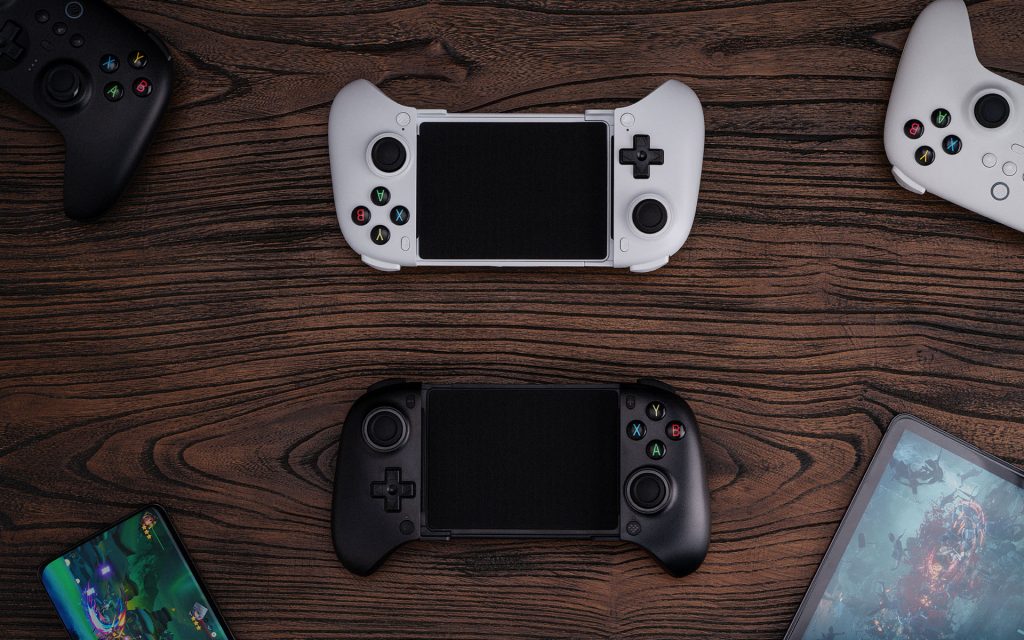Choosing the right gaming controller can make all the difference in your gameplay experience. Whether you’re playing on a console, PC, or other devices, a good controller can provide comfort, precision, and ease of use. With so many options available, it can be difficult to know where to start. Here’s a guide to help you choose the best gaming controller for your needs.
1. Comfort and Ergonomics: A Good Fit for Your Hands
The first thing to consider when choosing a controller is how it feels in your hands. A controller that is comfortable to hold for extended periods is essential for a positive experience. Look for one that suits your grip style, whether you prefer a relaxed hold or a more firm grip.
Some controllers are designed with contoured grips, textured surfaces, and ergonomic shapes that can prevent hand fatigue during long gaming sessions. It’s important to find a controller that feels natural, allowing your fingers to rest comfortably on the buttons and triggers without straining.
2. Button Layout and Responsiveness
The layout and responsiveness of the buttons are another key consideration. Most controllers have a similar button setup, but subtle differences can affect gameplay. Take note of the following:
- Analog Sticks: Check the placement and sensitivity of the analog sticks. They should be smooth and responsive, allowing for precise movements.
- Triggers: The triggers should be easy to press but not too sensitive. Some controllers offer adjustable trigger sensitivity, which can be useful for games that require varying levels of pressure for different actions.
- D-Pad and Face Buttons: The D-pad and face buttons (like A, B, X, Y) should be easy to reach and provide a satisfying click when pressed. Some controllers feature a more responsive D-pad, which is great for certain types of games.
Test out the controller (if possible) to ensure the buttons are placed comfortably and feel responsive during gameplay.
3. Wired vs. Wireless: Connectivity Options
When choosing a controller, you’ll need to decide whether you want a wired or wireless option. Both types have their pros and cons:
- Wired Controllers: These provide a direct connection to your device, ensuring a stable and lag-free experience. They’re often preferred for competitive gaming, where even the slightest delay can impact performance. Plus, you don’t need to worry about battery life.
- Wireless Controllers: These offer the convenience of freedom from cables, allowing for more flexibility in movement. Many modern wireless controllers have improved significantly in terms of latency and reliability, though you may need to charge them regularly or swap batteries. Some wireless controllers use Bluetooth for easy pairing with various devices, while others rely on proprietary wireless technology.
Decide which option suits your gaming environment and preferences. If you prefer a tidy setup without cables, wireless may be the way to go. However, if you’re concerned about potential lag, a wired controller might be better.
4. Compatibility: Ensuring Cross-Platform Functionality
Another important factor is compatibility with your device. Make sure the controller you choose works with the platform you plan to use, whether it’s a gaming console, PC, or mobile device. Many controllers are designed for specific consoles, but some are compatible with multiple platforms. For instance, some controllers can work with both PC and consoles via USB or Bluetooth connections.
If you plan on using the controller across different devices, look for one that offers broad compatibility. Some controllers even come with adjustable settings or software that allow you to customize button layouts for different devices and games.
5. Customization and Extra Features
If you like to fine-tune your gaming setup, look for controllers that offer customization options. Some controllers allow you to adjust the sensitivity of the analog sticks or triggers, or even remap buttons to suit your preferences. For certain games or genres, having the ability to personalize your controller can give you a more tailored experience.
Some controllers also come with extra features such as programmable buttons, vibration settings, or additional grips that can enhance comfort. These features may not be necessary for everyone, but if you have specific needs or preferences, they can be helpful.
6. Build Quality and Durability
The build quality of a controller is crucial, especially if you plan on using it frequently. A durable controller will withstand long hours of use, and possibly even the occasional drop or bump. Look for controllers with sturdy construction and high-quality materials. Controllers with reinforced buttons or additional grips often last longer and provide a more comfortable gaming experience over time.
You may also want to check user reviews for any potential durability issues, such as buttons becoming unresponsive or the controller experiencing connectivity problems.
7. Battery Life (For Wireless Controllers)
For wireless controllers, battery life is a key consideration. A controller with a long-lasting battery ensures you won’t have to stop and recharge in the middle of a session. Some wireless controllers offer rechargeable batteries, while others use replaceable ones. If you prefer a rechargeable option, look for controllers that offer a decent battery life, typically around 10 to 30 hours on a full charge.
For wireless controllers that use replaceable batteries, consider how easy it is to swap out the batteries when needed.
8. Price: Getting the Right Value
Price is always a consideration when choosing any gaming accessory. There’s a wide range of controllers available at different price points, so it’s important to decide what features matter most to you and how much you’re willing to spend. More expensive controllers tend to offer extra features, customization options, and improved durability, but a basic model might still serve your needs if you’re on a budget.
Look for a controller that offers the best balance of price and features based on your gaming preferences.
Conclusion
When choosing a gaming controller, it’s important to consider factors like comfort, button layout, connectivity, and compatibility. Whether you prefer a wired or wireless option, or need extra features for customization, there’s a controller out there for you. By focusing on what matters most to your gaming style, you can find a controller that enhances your experience and helps you perform at your best.

